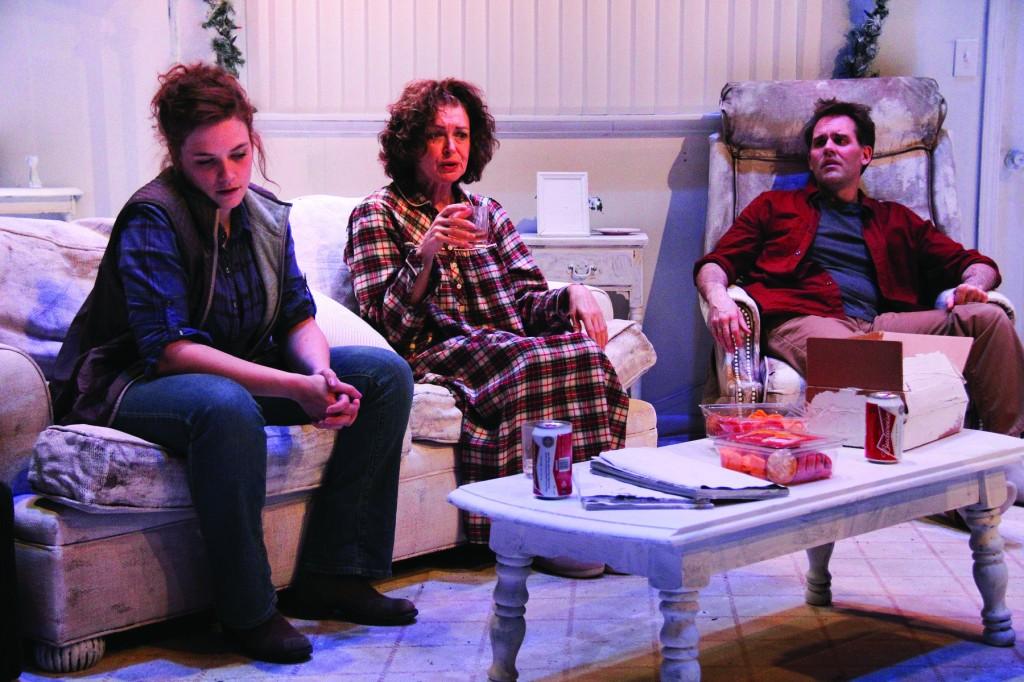No better way to spend a Sunday afternoon than with family counseling, huh?
Head over to the Storefront Theater for LiveWire Chicago’s production of “A Permanent Image” and the cast will try, with little success, to convince you as such.
This lackluster drama about familial tension and the futility of life left me pensive but dissatisfied, my mind grasping for the answer to the age-old question: “What was that?”
The show revolves around an Idaho mother Carol, portrayed by Janice O’Neill, whose husband recently committed suicide. The two lived a lonely existence after their children, Ally and Bo, moved out of the house and never looked back. Over their years of mundane small-town isolation, Carol and her husband did a good deal of research on the Big Bang theory, which ultimately convinced them of their relative insignificance compared to the grander universe. Martin, Carol’s husband, takes his own life using drugs he steals from his job as a hospital custodian. He dies expecting Carol to follow suit, but she refuses to do so without both of her children present.
The two kids — Ally, a small business owner, and Bo, a war photographer — arrive home after a decade of absence to find the entire house painted white, including the picture frames and magazines. Taking the bizarre transformation as evidence of their mother’s waxing insanity, the two spend the duration of the show analyzing the glitches in their personal psyches and pointing fingers in an attempt to pin down which bad seed brought their family to shambles.
If you haven’t caught onto this yet, “A Permanent Image” has too much going on with almost nothing coming through. Under the cliched umbrella of “dysfunctional family,” Samuel D. Hunter’s script paws at themes of alcoholism, verbal abuse, emotional neglect and invasion of privacy without actually tackling any of these issues. The two siblings obviously feel cheated by their childhood but never explicitly say what went wrong. Rather than initiating an honest adult conversation about their parents’ shortcomings, they spend the time home fighting over their petty political differences and acting astounded that they can’t properly grieve for their father. Their living-room wrestling match, which is the only part of the show that resembles a climax, acts as a halfhearted resolution for a slew of problems that have obviously carried into their adult lives.
Mostly, it’s a few people sitting around a white room, drinking and contemplating whether or not their lives are worth living. That, plus the political bickering about human apathy and the redundant dialogue about family obligation, makes for a mentally tiresome and emotionally numbing two hours and 15 minutes.
For what the script was, it was well executed. There were a few convincing monologues from each character, and even some striking interplay between the two siblings. O’Neill’s inflection and gestures were spot-on for the pathetic persona she was trying to capture. But despite their performances, the actors were difficult to relate to. All in all, my problem is with the script, not the actors. It’s a good show if you’re intrigued by middle-class white people talking about their problems. But otherwise, I’d give it a C.

